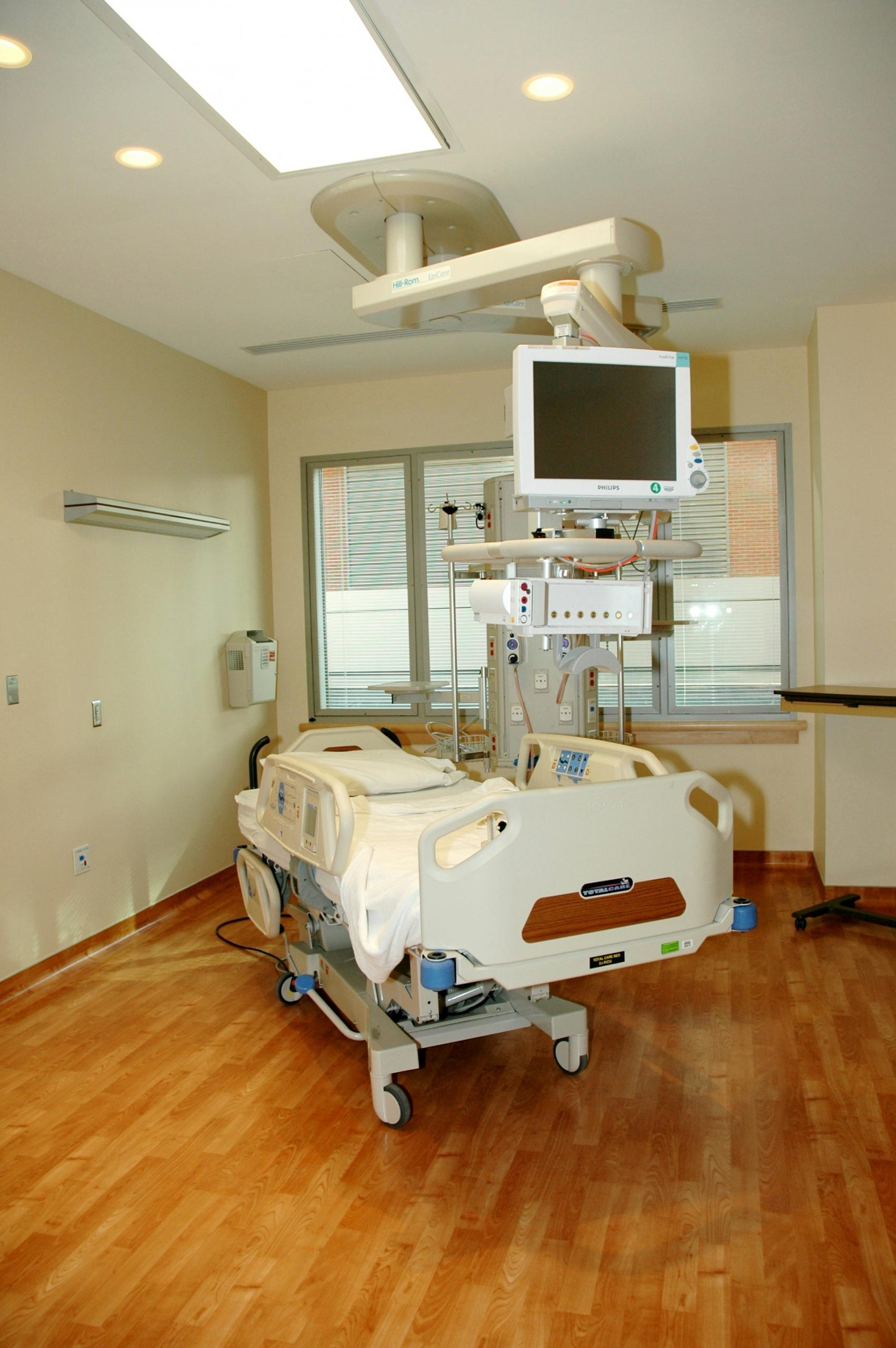There's gotta be something better than this!
A song from the musical Sweet Charity
Nursing in Australia is in quite a predicament. Lots of nurses are quitting their jobs or thinking about doing so. Fewer students are choosing to study nursing. The result is a shortage of nurses across the country.
Clearly, we're headed for trouble, but that's a discussion for another day. If you're looking for a career change from nursing, these jobs will help you make the most of your nursing degree. By this article's end, perhaps you'll have found the kind of opportunity that will let you leave nursing for good.

How to Transition From Nursing to a New Career
Many sources inform us that Australia is reeling from a shortage of nurses. Experienced hands are retiring and too few university students choose nursing. As our introduction pointed out, this situation will lead to a crisis in healthcare. However, it's not your crisis to address.
You may have already outlined your reasons for wishing to leave the profession. However, before you turn in your badge and stethoscope, you should give these points some thought.

I Want to Leave Nursing, What Can I Do?
This sounds like your desire to leave is still unformed and vague. Should that be the case, you must first define why nursing is no longer the type of work you want to do. In this early stage, you should create a 'pros and cons' chart to inform your decision. You may even add a third column to weigh how starting in a new field measures up to the job you already have.
Nursing pros
- trained, continuous learning
- experienced
- in-demand
- (pretty good) money
- benefits
- flexibility (diff. departments)
Nursing cons
- demanding work
- long hours/ quality of life
- public-facing
- administrative burdens
- accountability/lack of support
- emotional toll
New job
- unknown quality
- starting from the bottom
- perhaps poor wages
- less secure positions
- growth opportunities?
- Flexibility - remote work?
- Tuition reimbursement?
Analysing your current status may help you decide whether moving away from the field is the right choice for you. Weighing what you already have against what you might - or might not end up with is vital. If this exercise brings you only a little closer to a definite answer, you must do more soul-searching.
Alternative Jobs for Nurses Australia
Think about all the learning and training you've done, and all the experience you've accrued. Leaving it all behind calls for an in-depth self-evaluation. You may already have a firm grasp on your thoughts and feelings. Still, you'll benefit from taking an objective view of your work and life.
Nursing is a high-stress occupation but, then again, so are many other jobs. You might also have different stressors to deal with, such as lower earnings and less professional stability. Nursing is both physically and mentally demanding; other types of work rival those aspects.
You might like some aspects of your work but not others. Do the bad parts outweigh the good? Perhaps a different situation - working at another hospital or clinic, might help. If, in the end, leaving nursing is your best option, try volunteer work in the fields you're interested in before making your move.
A Career Change from Nursing
Your self-evaluation must have included your personal and professional strengths. When you know what you have to offer, you can start shaping what your future will be. You might decide to teach nursing courses online. You could go back to school for training that will maximise your best points.
You've no limit of opportunities. However, you should research each one. Whether related to nursing or a different field entirely, compare prospective work to what you already have. Factors to highlight include growth opportunities, salary and benefits, and work/life balance.
To help you start your search, Superprof presents these possibilities. The following fields are among the most common career changes for nurses in Australia.
The Most Common Career Change for Nurses in Australia

According to a December 2023 news report, many nurses leave their permanent positions for short-term nursing contracts. This strategy gives nurses a path to choose their assignments while still performing the work they trained for.
Workforce agencies negotiate contract terms, including shift flexibility and salary. Some for-hire nurses choose a shift-by-shift arrangement, while others prefer to work in three- or six-month instalments.
The pay through these agencies is reportedly much higher than traditional employers offer. On the downside, for-hire nurses receive no holiday time or health benefits. These 'freelance' nurses must also plan for their own retirement, as agencies offer no savings or investment programs. However, the higher compensation rates make financial planning more accessible.

Physical Therapy
My mate, who chose to pursue nursing courses in Melbourne, quickly grew dissatisfied with the hospital routine. Just as they began wondering: "What can I do with a nursing degree?", they suffered a sports-related injury. Nothing serious, but it took several months of physical therapy to recover.
Through conversations with the therapists, they realised such work would suit them well. They already knew human anatomy, and all about patient distress.

Best of all, physical therapists don't work nights or weekends, and typically don't have to deal with angry or abusive patients. The pay is comparable to the average nurse's salary, and one may earn more with advanced training. Physical therapist positions typically come with benefits, including healthcare, paid time off, and retirement options.
Clinical Laboratory Technician

Nursing is public-facing, meaning they must deal with people. Their patients are not their best, most social selves, even in the best of cases. Patients' pain, anger, fear and, often, despair take their toll on these professionals.
Working behind the scenes is a great way to stay in medicine without public dealings. As a laboratory technician, you can finally put to work all those chemistry lessons you took in nursing school.
The average pay for these positions ranges slightly lower than nursing, depending on where you live. Big labs in major cities can afford to pay more than smaller, independent facilities. Still, you may negotiate for benefits, and the lure of a regular schedule makes this work appealing. Especially for nurses who've had enough of dealing with unsavoury patients.
Health Services Manager
In this role, you would plan and oversee services in a healthcare facility. As this job title suggests, it's an administrative position. You will not practice medicine, nor will you have many dealings with patients.
You may interact with senior medical personnel at times, but most of your work will be with professionals outside the medical field. Such might include people in finance, equipment sales, and contract services, such as food prep and janitorial.

This field represents a definite career change from nursing. Still, those nursing courses in Perth that you might have taken will come in handy. For instance, if your purchasing department proposes buying substandard equipment and supplies, you'll have the final say. You would reject too-thin nitrile gloves because you know how durable protective equipment must be.
Such a job requires management training, so you will likely have to go back to school. Doing so may be worth your while, as the pay scale far exceeds what you might earn, even as a senior nurse. This salaried position comes with full benefits and paid time off. However, you may have to be on-call or available, in cases of emergency.
What Can You Do with a Nursing Degree Without Being a Nurse?
The pandemic laid bare the simmering issues in nursing. Burnout had long been a bane on the profession; COVID's endless workdays and heavy patient losses took an even greater toll. All of that was on top of already long shifts, lack of equipment, and staff shortages.
As our ladies from Sweet Charity sing, there's got to be something better out there. It's up to you to decide whether your 'better' means staying in nursing, but with more money and better hours. If the 'nurse for hire' scheme doesn't appeal to you - the workforce agency option, you have several other paths to explore.
You might even look into the pharmacology side of medicine. Your training as a nurse laid the groundwork for understanding medication, dosing, and possible interactions. As a pharmacist, your experience in patient care is perfect for easing customer anxiety over a new prescription.
Should your aim be leaving the nursing profession - and medicine, more broadly, take heart in knowing your training has equipped you with more than nursing skills. You must be a great listener, with deep wells of empathy and quick decision-making abilities. These qualities are the most in-demand in today's workforce.
When you decide to get up, get out, and leave, make sure you have a plan. Consider everything from your desired salary to what you want in your life. Now that you know you have options inside and outside of nursing, you only need to chart your path forward.
















